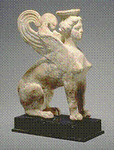
In my weekly writers’ group we regularly mention information dumps, perhaps because so many authors are guilty of that fault. All of us in the group notice them and see the info-dump as a technique to be avoided.
For anyone who doesn't know what an info-dump is, here's a good description from Bruce Sterling's version of The Turkey City Lexicon, originally published in Paragons: Twelve Master Science Fiction Writers Ply Their Craft, edited by Robin Wilson (St. Martin's Press 1996), ISBN 0-312-14032-1:
Info-dump: Large chunk of indigestible expository matter intended to explain the background situation. Info-dumps can be covert, as in fake newspaper or “Encyclopedia Galactica” articles, or overt, in which all action stops as the author assumes center stage and lectures. Info-dumps are also known as “expository lumps." The use of brief, deft, inoffensive info-dumps is known as "kuttnering," after Henry Kuttner. When information is worked unobtrusively into the story's basic structure, this is known as “heinleining." [After Robert Heinlein]Wikipedia has an entertaining article on Exposition (plot device), with amusing references and examples of infodumps. As explained in the article,
Exposition is a literary technique by which information is conveyed about events that have occurred prior to the beginning of a novel, play, movie or other work of fiction. This information can be presented through dialogue, description, news reports, flashback, or even directly through narrative. Because exposition generally does not advance plot and may impede present-time action, it is usually best kept in short and succinct form, though in some genres, such as the mystery, exposition is central to the story structure itself. . . .When the presentation of exposition becomes awkward or wordy, it is sometimes referred to by the pejorative expressions plot dump and info dump.
The problem is, how do you avoid an info-dump when there’s a lot of information you want the reader to know?
The best way to convey information to your readers is to integrate it into the story as seamlessly as possible. This takes skill and can be time-consuming--but it can be done. A good article about handling info dumps is "The Artful Infodump," by Charles Coleman Finlay.
Over at the Rth Dimension website, Rich Hamper has a bunch of suggestions for avoiding info dumps. His list includes an explanation of each term, but here I'm just going to name them:
deductive introspection; introspective reminiscing; flashbacks; "stranger in a strange land"; the briefing; "the bard"; media blurbs; strategic character; "the Dr. Watson"; and strategic debate. For his definitions, click on the link above.
At our next meeting my weekly writers' group is going to discuss info-dumps. Each of us will bring in an example of an info-dump to share with the others. There are some sharp minds and fine writers in that group, so it ought to be a good session. I'll let you know what we come up with.
P.S. You can find another version of the Turkey City Lexicon here; edited by Lewis Shriner, it's shorter than the Bruce Sterling version mentioned above. Oh, and thanks to Ariane Little for tipping me off to the Finlay and Sterling links.





